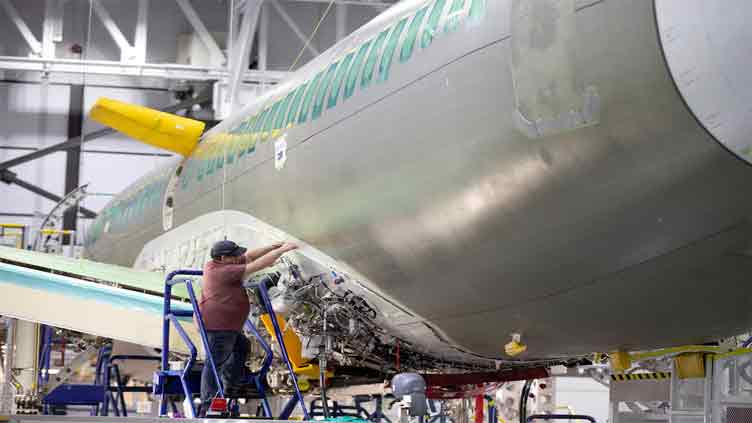Canadian Airbus A220 workers to start pressure tactics after rejecting contract

Business
The union's contract expired in December
MONTREAL (Reuters) – Canadian Airbus A220 jet assembly workers will initiate pressure tactics on Monday that would slow production, after voting on Sunday to reject a proposed contract and give strike authorization, a union official said.
Around 99% of the estimated 1,000 members represented by the International Association of Machinists and Aerospace Workers (IAM) who voted rejected the contract, and gave strike authorization, said Eric Rancourt, a union spokesperson for the negotiations.
While the authorization mandate does not equate to an actual strike, the vote signals discontent among the estimated 1,300 Montreal-area workers who assemble Airbus's smallest commercial jet in Mirabel, Quebec.
The negotiations have raised tensions at a time when Airbus is trying to grow A220 production while lowering the cost of the money-losing programme, even as it rides a broader wave of orders from airlines coping with a rebound in travel demand from the COVID-19 pandemic.
Union plans to return to bargaining on Monday will coincide with the start of pressure tactics that would slow production, Rancourt told Reuters after the vote, without giving further details.
A second assembly line in Mobile, Alabama also produces the A220.
Airbus's Canadian division said in an emailed statement that it recognized the vote results and remains committed to "reconciling the interests of our employees with the economic imperatives of the A220," to find an agreement that "suits both parties."
The planemaker said its "initial offer had been made to the union following open discussions for a few months and taking into consideration the current context of the A220, which has not yet reached the break-even point."
The deal offered approximately a 10% raise over three years, and would have removed certain retirement benefits. The union has not disclosed a specific demand for wages.
"We are not going to accept going backwards," Rancourt said. "We need to improve our working conditions."
Rancourt said the union wants to reach a negotiated contract and avoid a strike if it can. "It depends on the employer's attitude."
The union's contract expired in December.
Unions have recently capitalized on tight labour markets and inflation to win hefty contracts at the bargaining table, with airline pilots, autoworkers and others scoring big raises in 2023.
Boeing's unionized production workers in Washington state have called for wage increases exceeding 40% over three to four years.


